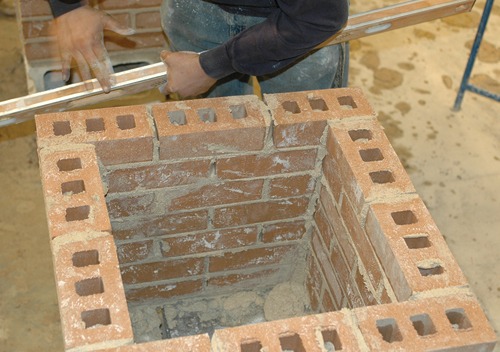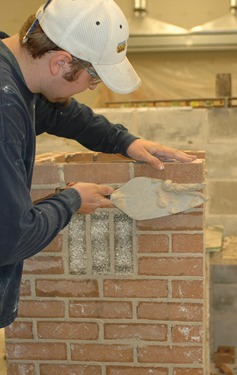Workforce Development
Rebuilding Our Future
There seems to be good news on the horizon. There are pockets of our economy that are seeing a nice rebound. Areas that have not seen a terrific rebound commercially have seen an increase in the amount of work to bid.
While the margins have not increased all that much just yet, as the markets pick-up, that will be a natural progression. The best indicator that better days are ahead is that the housing market, in just about every part of the country, has had a substantial pick up.
All this great news will present challenges for our industry. The construction market has been deeply depressed since 2008. The downturn has lasted a minimum of five years. During that downturn, our industry began to purge our workforce and our apprenticeship program network.
|
|||
While this was a natural progression of our downturn, what it has presented is what will likely be a severe shortage of labor in our industry. Already in the housing market, there are stories of homebuilders needing to slow their rebound, due to the lack of labor to build homes. Stories of homebuilders having auctions and lotteries for available homes already are surfacing.
About three years ago, the MCAA Board understood the need our industry would be facing in the future. As a result, the board decided it was time to seriously look at and develop a plan for rebound. The first thing we did was determine that the apprenticeship series we were using was outdated and in dire need of update.
Instead of re-vamping our own program, we looked to other good, quality programs that we could support that were capable of being an excellent national program for our industry. That brought us to the National Center for Construction Education and Research (NCCER). The Masonry Association of Florida (MAF) had developed an excellent program that brought them to the forefront of construction recruitment and training in their state, and it’s the best program I have seen nationally.
The MAF had developed a program that uses the NCCER program for apprenticeship and high school training. On the high school level, they became the go-to organization for the state in regards to overseeing the vocational education in many of the high schools in Florida. Services to audit high school vocational records are provided on behalf of NCCER to verify compliance with NCCER credentialing of their program.
As a result, fees associated with these audits were developed, and now audit all construction vocational programs, not just masonry. The MAF also became the source for registering students in these high school programs in the NCCER database and maintains their transcripts for credentialing purposes. They get a fee to register the students.
Lastly, the MAF became a training resource for the high school instructors. They provide training programs for the vocational instructors that teach them how to use the NCCER program and track student progress within the system. This education is paid for by a Perkins Grant and has been very popular among the instructors.
All of this work took a lot of effort on their part, and much has been done politically to get the state of Florida to give incentives to support vocational training in high schools. It has taken them years to develop this program, and what that high school program has now produced for them is a six-figure revenue stream that pays for their entire apprenticeship program, which even through the recession has been resilient.
About two years ago, the MCAA and MAF, through the support of the National Concrete Masonry Foundation, began to develop a model program for other state groups to use to develop their own programs.
This information should shave time off any future program development, as they will now have a road map of how to implement the program. Last year, we began a pilot program in Arizona. This fall, we look forward to adding Colorado to the program (thanks to the Rocky Mountain Masonry Institute) and, in January 2014, the UT Masonry Council is planning to model this program in its state.
In addition, this fall, the MCAA will hire a coordinator for high school activity in the state of Kentucky. Their state Department of Education is looking to implement a program similar to what the MAF has developed for Florida. We plan to implement the model in Kentucky, and then have this person work with other states looking to develop model programs.
I would encourage other folks who are concerned about their workforces to contact me at the MCAA to see how we can help bring this program to you. We want to see our workforce of the future develop and grow today. We need to prepare for our future, or we will be our own worst enemies as we come out of the recession.
| Jobs That Stack Up |
||||
 A Kirkwood Masonry student’s hands rapidly work a brick tower during the SkillsUSA competitions at Jones Hall in April 2013. For Matt Fish, an investment of less than a year at Kirkwood Community College could pay off for decades to come. The Waterloo-area grad has put the skills learned in his masonry classes to work as an apprentice mason since last summer. Fish is on a training and job growth track that should make him eligible for wages north of $1,000 a week in a few years. But one aspect of his new career has Fish thinking further ahead than wages or advancement. “It’s pretty satisfying to work on something that you know is going to be there a hundred years from now,” Fish says. Matt Fish is one of dozens of recent graduates from the Kirkwood Masonry program, one of many construction-related programs in the college’s Industrial Technologies department. Students learn skills that reach back to the pyramids of Egypt and great European cathedrals, while also reflecting the latest advancements in energy conservation and modern “smart buildings” technologies. Graduates also benefit from an overall demand for valued, hands-on skills to replace a wave of retiring workers from the Iowa and Midwest workforce. For more than a decade, the Kirkwood Masonry program has been taught by Joe Luchtenburg. He started as a tender, assisting union bricklayers the mid-1980s. After completing the industry-led bricklayers’ school in Des Moines, he began work with Seedorf Masonry, one of the state’s leading firms. He now is an instructor for Kirkwood.
Luchtenburg points to his teaching area in Jones Hall. “This whole end of the building where we teach masonry and construction technologies is one of the best examples. Our students helped build all of this!” he says. Steve Moyle, owner of Moyle Masonry, says hiring Kirkwood masonry grads “saves a lot of time” and makes further training progress much easier for his company. “I’ve been pretty impressed with what Joe teaches these students. They come to us with solid, basic knowledge,” Moyle says. Industrial Technologies Dean Jeff Mitchell observes that Kirkwood’s program is the only masonry program offered by a community college in Iowa. “The knowledge and skills our students learn align directly with employer needs,” Mitchell says. “Students graduate with a strong work ethic ready to start the track from apprentice through journeyman to the master mason skill levels.” While Luchtenburg and other Kirkwood leaders are proud to point to local projects as close as the college campus, they acknowledge the periodic economic gyrations of economic conditions in the Midwest. “Sure, over the past 20 years we’ve had up and down times,” Luchtenburg says. “It was interesting that the big recession of five or six years ago also found this area rebuilding from the record flood damage. It’s been quite a time for the trades. “But we’re proud to say we have placed grads with good firms in Wisconsin, Illinois, Kansas, Minnesota – pretty much all around the Midwest,” Luchtenburg adds. “That’s one of the powerful things about a certified mason with those credentials. You are able to show you can work and go to work anywhere in the United States.” Kirkwood’s Masonry Construction program is a nine-month diploma, spanning two months. The curriculum prepares students to enter the trade of bricklaying. Students are given a hands-on intensive introduction to the skills used by bricklayers. Classroom experience takes place between an internship with an instructor of the program and the masonry field experience at the end of the program. For more information from Kirkwood’s Industrial Technology department, call 319-398-4984. |
